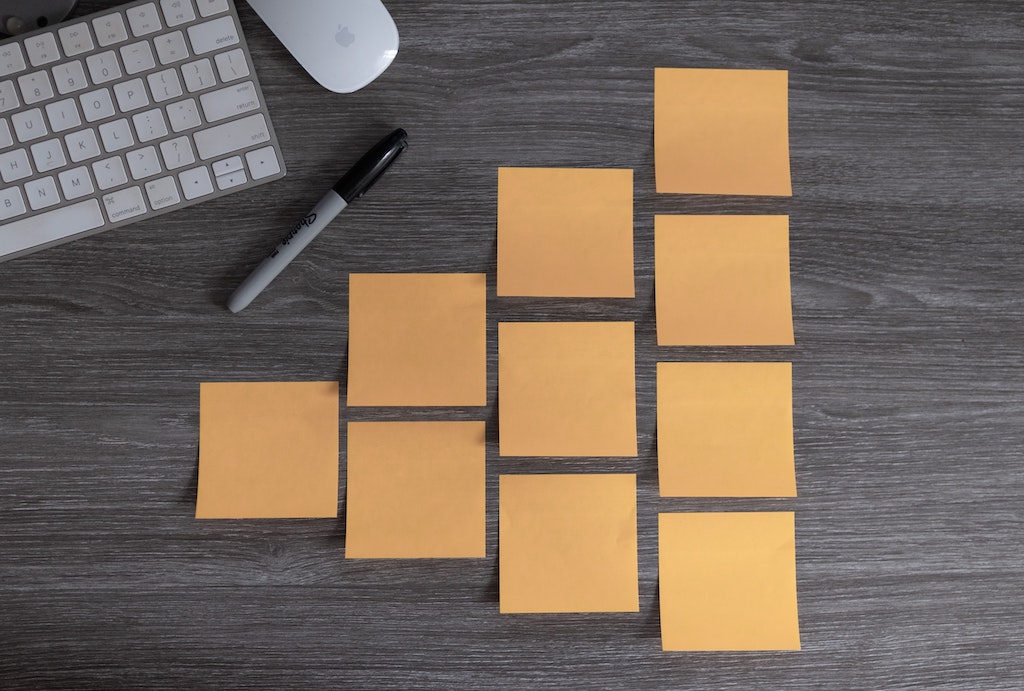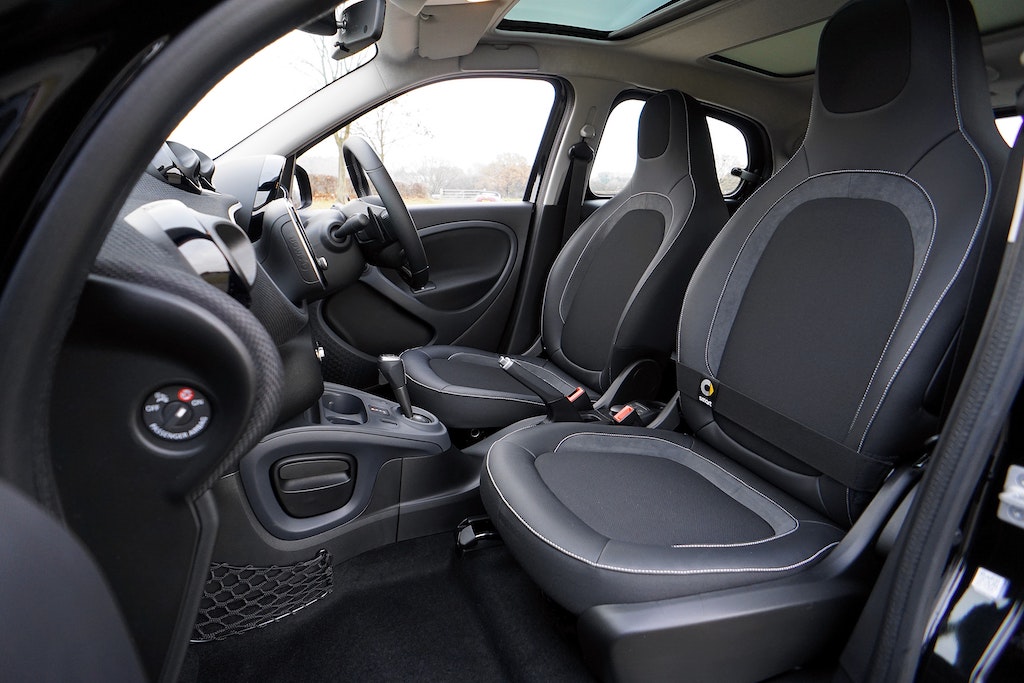7 Ways To Get Organized Now: Declutter Your Life And Live Better

This post may contain affiliate links. I only recommend products I trust or personally use. Please read our disclaimer for more info.
There are few things in this world that can derail your ambition faster than the thought of “this is a mess.” Whether it’s your home, your job, or anything, you need to get organized now in order to be mentally ready to tackle it.
I haven’t always been the most organized person. But once I made it into adulthood, graduated college, and now have started my own business, let’s just say that learning how to get my life organized has made all the difference in both how much I get done and in how I feel each day.
But trying to stay organized when you’re tired, burned out, or just having a lazy day is easier said than done. That’s why I want to give you some easy, quick-hit tips to show you how to get your life in order and get you moving on to bigger and better things!
1) Keeping Your Space Clean At Home
Home is where the heart is, right? Which is why it’s also the first and most important place that you should concern yourself with when you’re trying to go from not organized to in control.
Here are some really simple ideas to get your home more organized, quickly.
Eliminate Extras
I’m all for having enough of something, but sometimes there’s a fine line between “enough” and “too much.”
Stop stockpiling quite so much in terms of grocery store items. You may as well just put $50 on a shelf and not touch it for 6 months, but that money can definitely be put to better use today. Sure, grabbing extra when something is on super sale is a great choice, but make sure it’s a REALLY good deal before you buy more than you need.
Condense Your Organization System
I’ve seen people that try to have separate bins or “drop zones” for bills, general mail, receipts, magazines, and all manner of loose papers, books, etc.
Instead of trying to keep this complex system going, just have one main drop zone for ALL incoming paper, maybe a separate one for any library books (since those don’t need to get lost!). At most, you might have one spot for personal papers and one for work, to make sure things don’t get mixed up.
Tackle this “bulk bin” on a once- or twice-weekly basis. Shred the junk, pay bills, and file away important papers/records. Toss the rest.
It does you no good to touch everything multiple times over multiple days.
You’re just “pushing papers” and wasting time!
Practice A Daily Pickup Routine
Sure, I just told you to only touch your papers bin(s) once or twice a week. But that doesn’t mean you’re being lazy and neglectful.
Every night before bed, pick up those random items that seem to like to migrate around your place. Hang up jackets, put dirty or simply discarded clothing into a hamper, put any loose papers into those drop bins, make sure all the dishes are either drying in a dishrack or in a running dishwasher, etc.
You’ll wake up in the morning to a place that’s much tidier, and draws your attention far less than if you were constantly noticing what was out of place.
Have A Place For Everything
You probably already put 2 and 2 together with the tips listed above, but it’s worth calling this out by itself.

You HAVE to make sure that everything in your home has a home of its own. You can’t store the vacuum in the hallway, the big salad bowl on the counter, jackets on the back of a chair, and library books in a stack on your kitchen counter.
Get storage cabinets and bins if you have to (hop on Pinterest for some solid inspiration there!), use labels if you’re really desperate to remember where things live, and get your stuff in order.
When you get this organizing done, if you still have things that you just cannot find a place for, it’s time to take a real hard look at them and decide if they’re worth keeping. If they are, you’ll probably need to rehome something else that’s less important to make room for this one.
2) Keeping Your Space Clean At Work
The methods for how to stay organized at work is going to look a LOT like your home organization effort, just on a much smaller scale — you’re likely limited to a one-room space at most regardless of whether you work in a corner office, a cubicle, or out of your own home.
Keep Your Papers Well-Sorted
The office supply stores have been selling those paper sorters with multiple slots for longer than you and I have been alive, and with good reason — they work.
For work, as opposed to home, however, you’ll want to modify your organization. Instead of simply having a stack you only sort 1-2 times per week, you’ll want to organize by priority. You might be wise to have a 6-bin/slot system, assuming you work a 5-day week. Assign one slot to one day of the week, and the top or front-most slot is your highest priority stuff, that MUST be addressed before anything else in that bin.
Manage Your Time
Every employer wants the most productive and efficient employees possible, but there’s a good reason for this to be one of your priorities too.
The more work you get done, in the same or less time, the more ammo you have to bolster a request for a raise. (Boom. That’s a win!)
If you know how to be more organized at work AND you work one of those jobs where you don’t have set hours but can stop whenever your work is done, then the more efficient and fast you work, the sooner you go home.
And if you’ve got things on the schedule to manage outside of work, you’ll be really glad you kept better track of things so you don’t have any events or obligations slipping through the cracks.
Do A Daily Sweep
No, not with a broom (unless you work in a woodshop, maybe?).
Before you leave work for the day, make sure that you’re putting things back where they belong, making sure that priorities for the next day are set and visible, and that you know you’ve got everything you need to crush your workday tomorrow.
If you need a report that someone else isn’t done with yet, for example, put a post-it note in an obvious spot and label it with the report name. Ask the person to put it right on top of that post-it when they finish. Then you’ll know exactly where it is. If you work in a more non-paper setting, make a reminder list or stick post-its on the desk of what you’re missing, and you’ll know exactly what to check on first thing tomorrow.
3) Keeping Your Space Clean In Your Car
Why are cars the easiest thing to make a disaster of? Maybe it’s because of how little time most people spend in there each day — it’s simply an “out of sight, out of mind” scenario.

This is the most straight-forward thing you’ll ever clean though. Ready?
- Get a plastic cereal bin to use as a “car garbage.” Line it with a plastic bag and thank me later.
- Keep a jar of cleaning wipes in your car. End the work week on a good note by giving the dash, wheel, and radio controls a quick wipe-down when you get home from work on a Friday night. You’ll start on Monday feeling like you drove a new car to work, and that’s worth a LOT of subtle ambition.
- Make sure to add it to your monthly checklist of cleaning tasks to give your car at least a quick vacuuming and clean out the junk (like empty water bottles and smelly gym clothes that fell out of your bag).
4) Organizing Your Daily Tasks
The easiest way to stay organized is to make sure that you make organizing and decluttering a daily thing.
Doing a nightly sweep at the office to prep for the next day, and doing a nightly quick pick-up before bed is an AWESOME (and low-effort) way to keep yourself on track and on top of things. Not to mention that the longer things pile up, the longer it takes to get through them later.
Now, I can’t tell you exactly how to organize your day, but there are some main elements that everyone needs to stay happy, organized, and moving forward on their vision.
- Wake up early, and at the same time EVERY DAY.
- Have a solid morning routine that includes some “me time” to decompress and find your inner peace before tackling the day.
- Schedule both work and personal time in time blocks, and try to keep them roughly consistent from day to day so that your body falls into a routine and knows what to expect. Routine and habits make for far more overall productivity because you can almost do things without thinking.
- Make sure your day has a decompress time block somewhere (more on this later). You need time to get your head out of “on” mode and let it just come down to an idle. Just as a car can be burned out if you constantly run it at high speeds, your mind needs a chance to just roll along once in a while, too.
- Have a solid night routine that helps you feel peace before bed so that you can fall asleep faster and sleep better. Include a step that gets your head wrapped around what you’re going to accomplish tomorrow so your “sleeping” brain can have the whole night to make a plan for that to come true.
5) Remove Things That Are Not Valuable Or Steal Your Joy
Yup. I’m about to go all Marie Kondo on you to an extent.
Sure, she might be a fad. Sure, she makes women go on insane garbage-bag-filling raids. Sure, there have been some AWESOME memes and parodies made about it.
But the woman has a point.
Why do you keep something that you can’t use, that is worthless, and that you haven’t touched in a decade?
I’m all for keeping a few toys from childhood until you have your own kids to pass them on to. But if you’ve got an extra pair of shoes in your closet that has holes in the bottom and so you never wear them, why not just get rid of them?
Here’s the little underlying secret bonus of getting rid of these sorts of things: the less stuff you have, the less you have to clean (or clean around), the faster you can clean, the more time you free up to spend how you want.
6) Schedule A Daily Decluttering Break
Yes, this is a distinct and different thing than your daily task organization time.
In this time block, you’re going to stop and declutter your MIND more than anything, by meditating, saying positive things aloud, etc. The goal here is to specifically declutter out the negative things in your mind because they’re just taking up valuable space that could be used for positive thoughts instead.

Try immediately following this with your Marie Kondo efforts, because you’ll be in the most upbeat state of mind and better positioned to take an objective look at your stuff and decide what stays and what goes.
This IS going to be one of the best times to do your daily task organization because your mind is clear of doubts and negative thoughts, feeling its most ambitious, and feeling that the world of possibilities is wide open to you.
If that’s not enough to convince you that meditation is time well-spent, then consider this:
A study found that people who showed anxiety in the 80th to 100th percentile reduced their anxiety by about 30-40% with mediation.
These people included post-war veterans with PTSD, for example. If it can help them remove that much anxiety there is no reason it can’t help you simply get your head in the right space for success.
You can read more awesome info about why meditation works, here.
7) Creating Your Own Routine To Get Organized Now
Now it’s time for you to put all of this together to make a routine that YOU can follow, reliably and successfully, to start to see your life take a turn for the better — to start to see your dreams come to life. Follow these next steps in order.
Write down everything you need to do in a week or a month.
You can get as detailed as you want, but I wouldn’t go much more in-depth than writing “clean the bathroom” and “vacuum the house” when it comes to cleaning tasks, and “work” for a simple X-hour-long block of work time.
If you take your dog on a 2-hour hike every Saturday, write that down. If you’re starting a side hustle and want to put 10 hours per week into it, write that down too.
You’ll use all of these tasks in the next step to fill up your calendar.
Fill in a calendar for a practical look.
Take a blank calendar (you can find free planner pages with a simple google search) and use it to get a feel for how to balance out those tasks. Including times will be a big help in making sure your list is balanced and practical, so consider using a weekly view that includes hours of the day on it.
Block out your day for sleep and work hours first, since those are non-negotiable.
Next, add your regular obligations, like that weekend hike with your dog and your side-hustle time.
Around that, schedule the rest. If you do a daily gym session, put it where you want it to happen. Add an hour or two per day for house cleaning if needed, put 30 minutes once or twice a week to sort those drop bins. Add 15-30 minutes morning and night for your organization and “mental decluttering” sessions. Schedule a weekly car clean-out so that you don’t forget it.
The point with this step is to make sure that you’re balancing your week. If you try to fit everything into 3 days around your work schedule, for example, you’ll never practically get it all done and you’ll end each week feeling defeated.
Take action.
Let’s face it: you didn’t need to do the steps of writing everything down and filling out a calendar. You already knew what you needed to do, when it needed doing, and how your days needed to look to make it happen.
The REAL fix for getting decluttered and getting on to living your life better is to stop being lazy.
It’s easier to just put a box of junk in the basement to deal with later than it is to load it up and drive it to the local thrift store donation center.
It’s easier to throw yourself on the couch to watch TV than to do a quick pick-up around the house and do a task-planning session for the next day.
It’s easier to sleep in than it is to get up early and Make. Things. Happen.
Get Organized Now
Outside of working each day, I challenge you to this: spend one hour every day fighting against the lazy instinct and taking action on something.
Sort an old box of junk for one hour.
Organize a long-neglected filing cabinet (or worse, a box of unsorted papers).
Whatever you do, find something that will help you get the junk and sludge of life out of your way so that NOTHING is blocking you on your way to better days and seeing your visions become your real life.

Hey! I'm Noah Riggs.
Noah is the founder of Busy Living Better and has built a life he loves, despite growing up poor. He shares exactly how he started his six-figure business, became financially stable, and lives his best life so that he can help you do the same. You can read more about how he did all of this before the age of 23!
